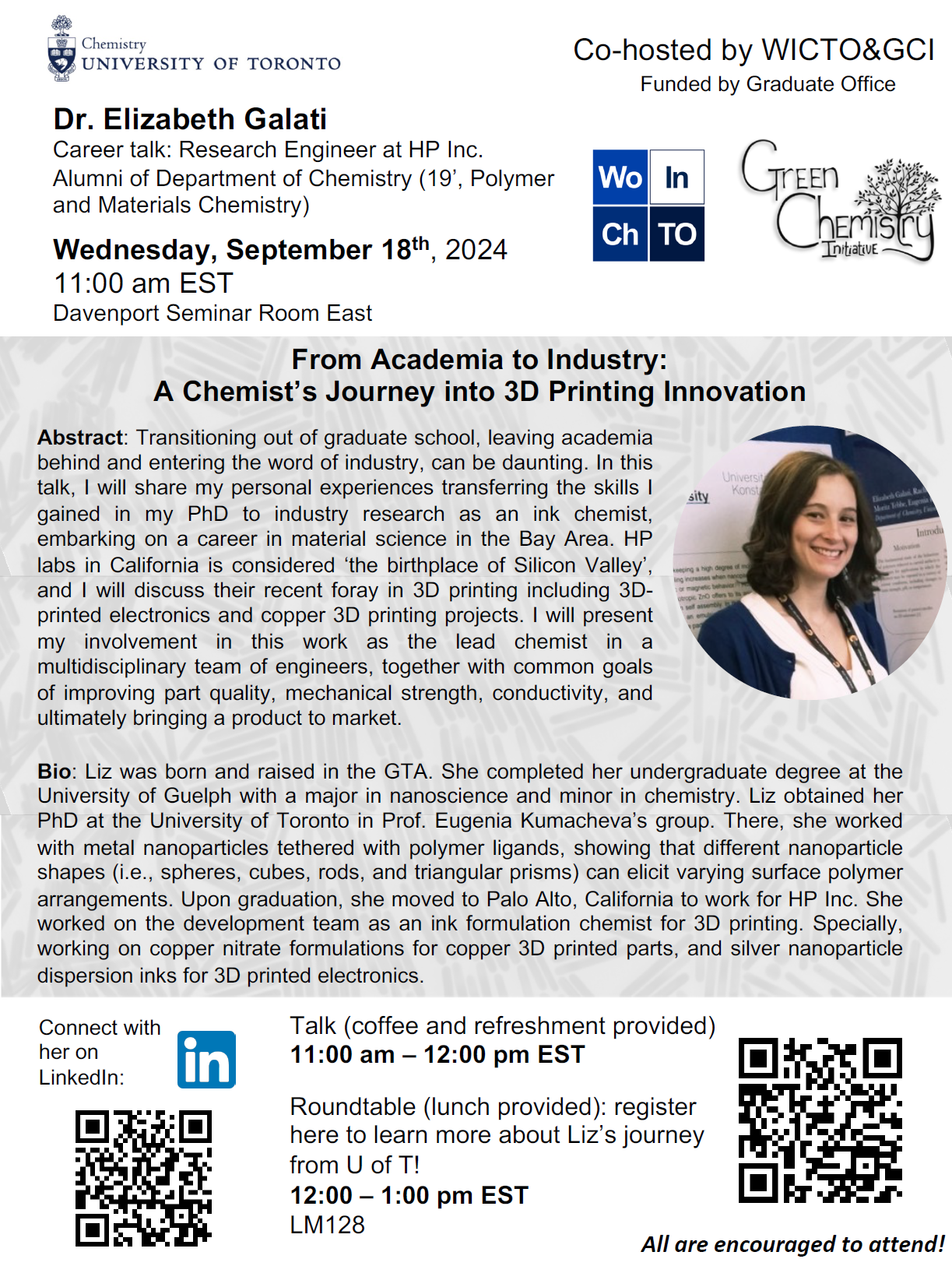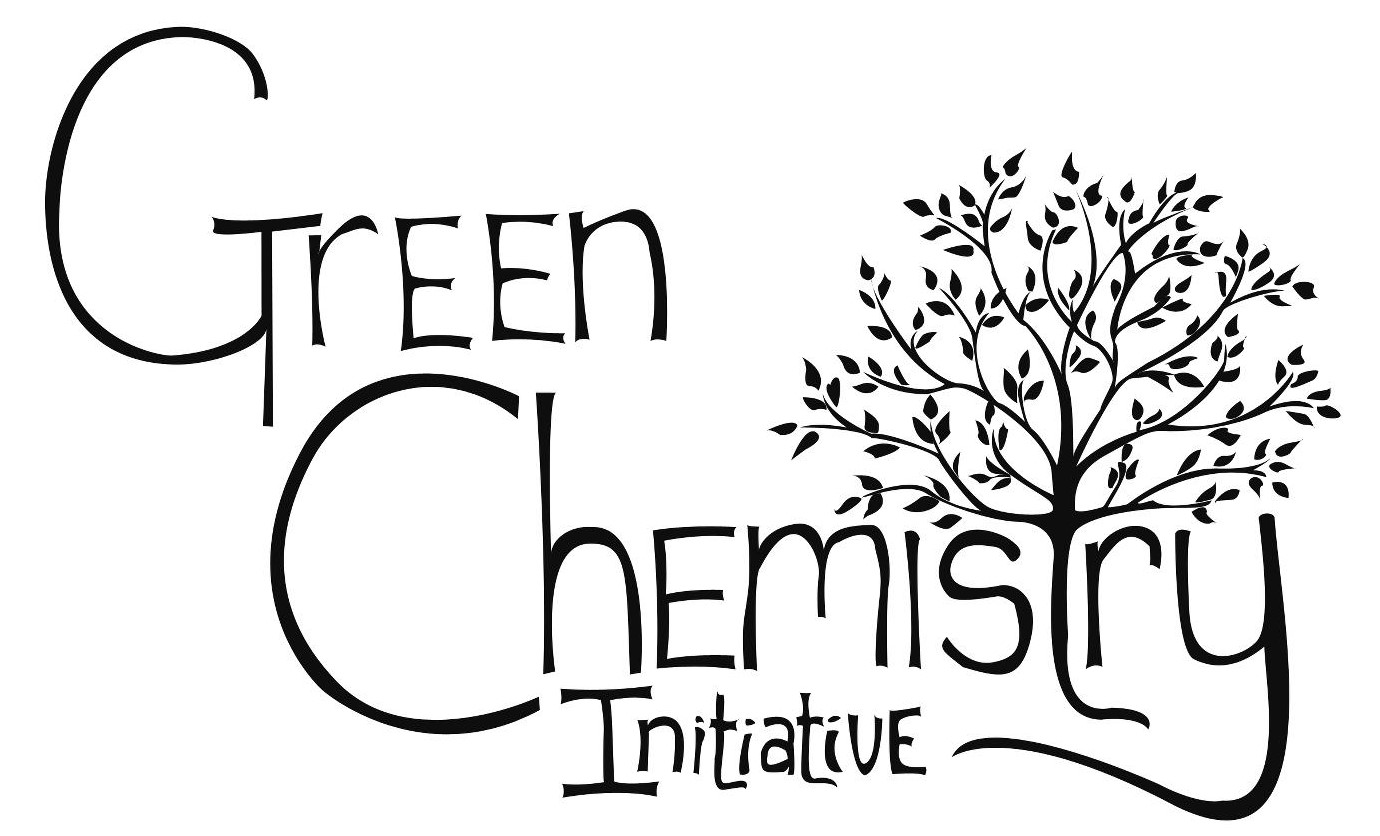The seminar series is designed to bring world-class researchers and experts in the field of green chemistry to the University of Toronto, so that they may share their experiences and ideas with the students and faculty here in the Department of Chemistry and with the university as a whole. The GCI strives to organize a balanced seminar program that highlights green chemistry principles and advances in all of the sub-disciplines of chemistry, from both academic and industrial perspectives.
2025-2026 Seminar Series


Past Seminars
2024-2025 Seminar Series

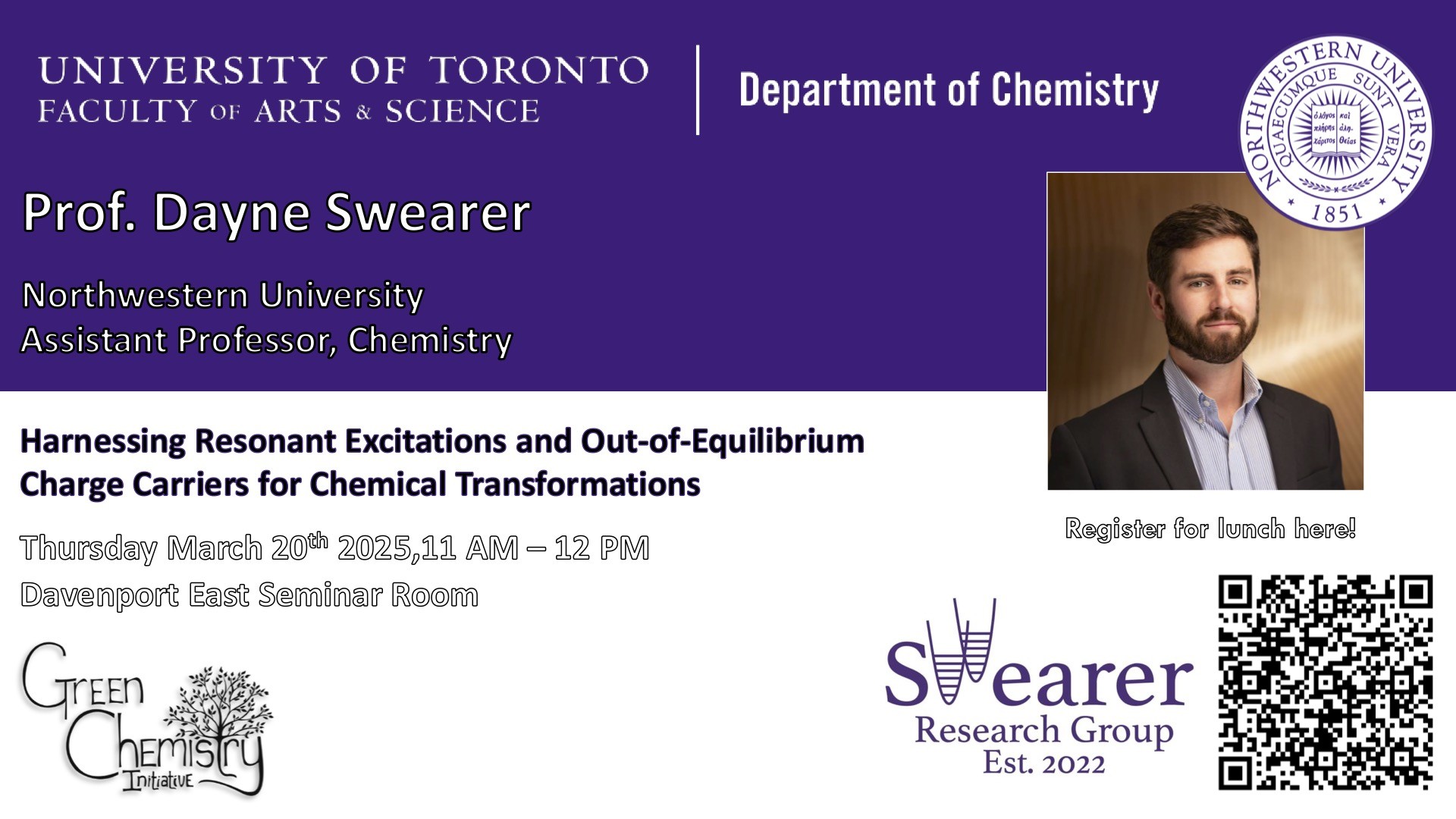
.jpeg)
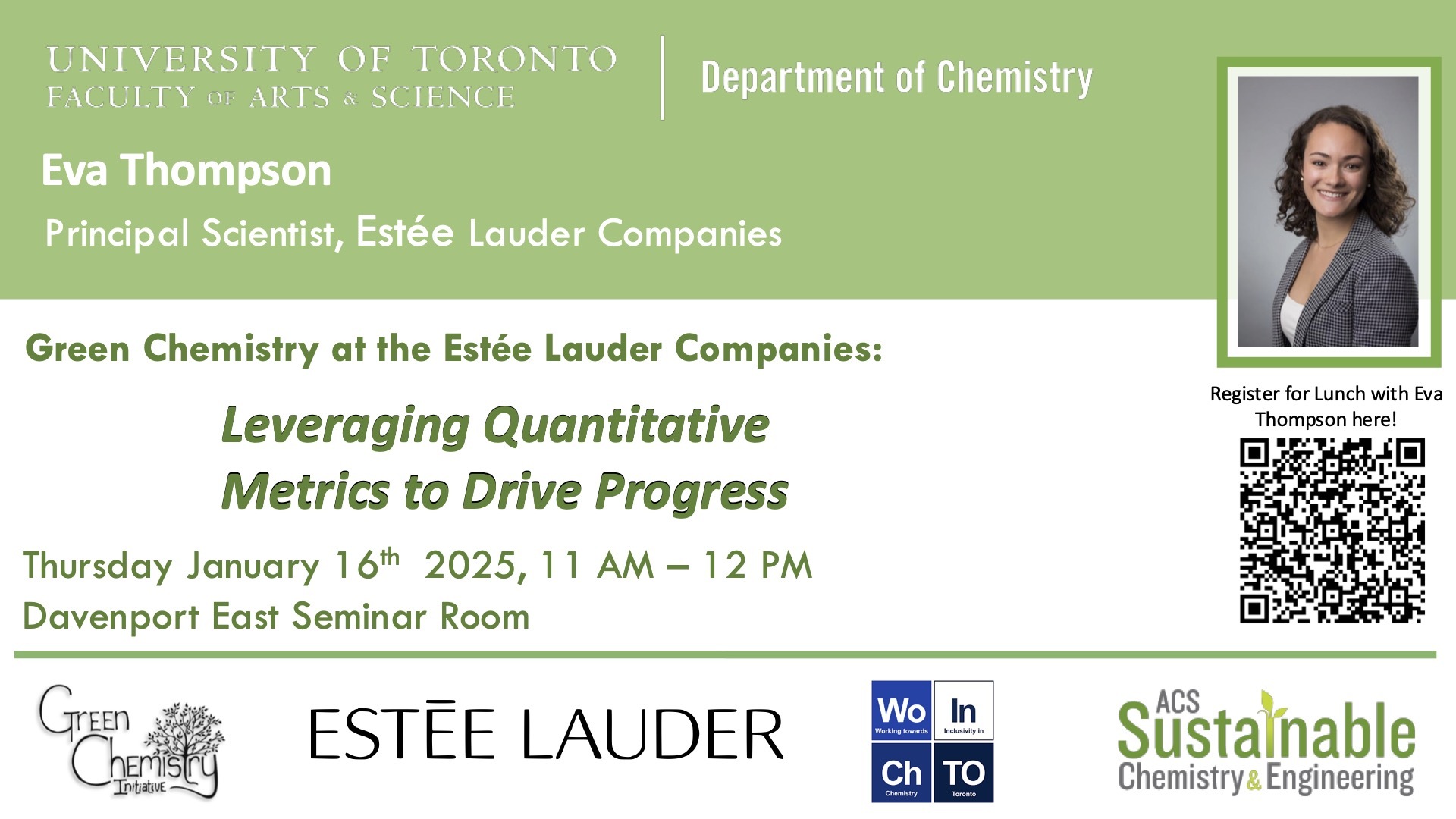



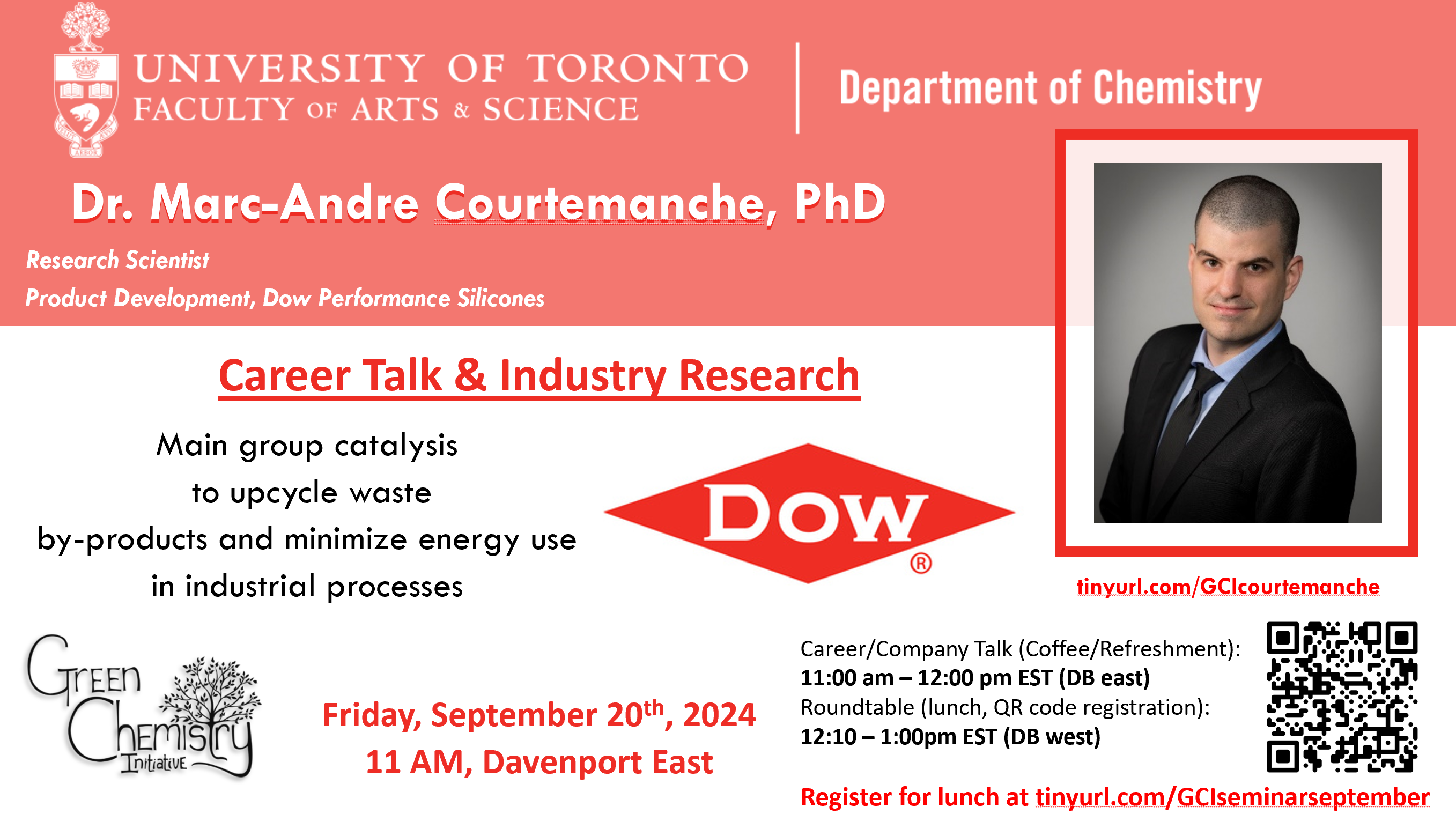
2023-2024 Seminar Series
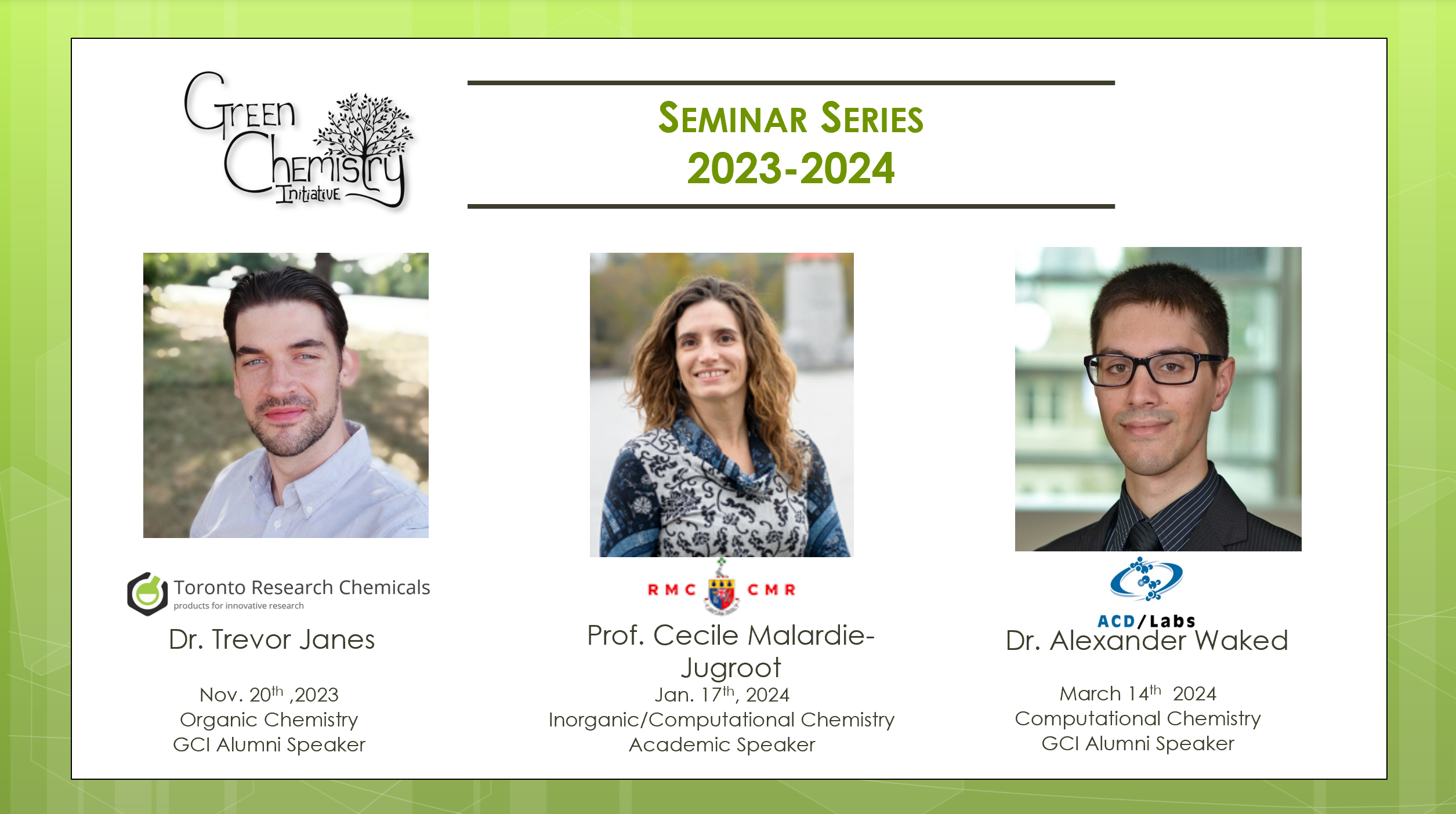
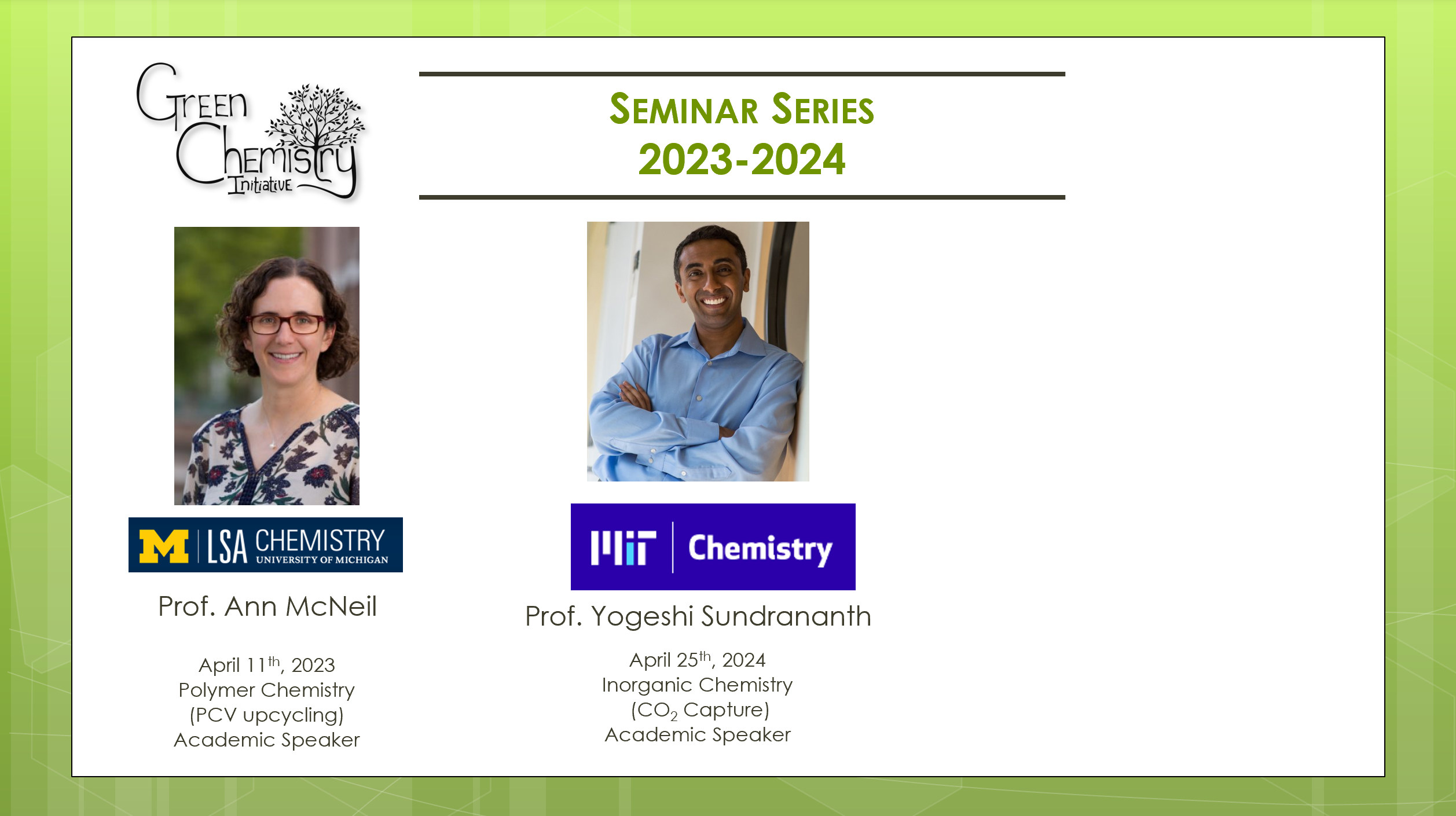
Using Electrochemistry to Understand and Control Green Thermochemical Catalysis
Speaker: Prof. Yogesh Surendranath, Department of Chemistry, Massachusetts Institute of Technology (MIT)
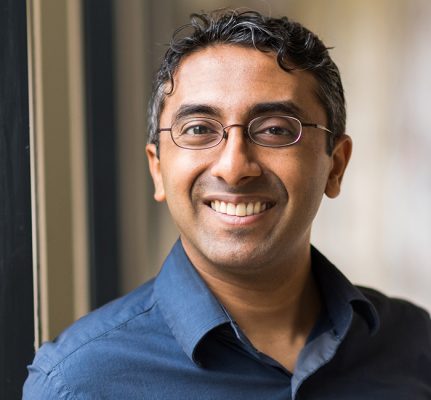
Abstract: Frontier challenges in green chemistry require precision control of catalysis occurring at solid-liquid interfaces. Unlike for gas-solid interfaces, at all solid–liquid interfaces, the exchange of ions and/or electrons with the solution can lead to electrostatic charging or polarization of the interface. However, the role of these charge transfer reactions and interfacial polarization is poorly understood in the context of thermochemical catalysis. We have developed general methods for tracking and controlling the degree of interfacial polarization during catalytic turnover and have used this approach to understand and tune thermochemical oxidation, hydrogenation, and acid catalysis. We have found that many net thermochemical reactions proceed as coupled electrochemical half-reactions and that interfacial polarization can be used to promote catalytic rates by orders of magnitude. These findings providing new opportunities to tune and design thermochemical catalysis by applying the principles of electrochemistry.
About the Speaker: Yogesh (Yogi) Surendranath is a Professor of Chemistry & Chemical Engineering at the Massachusetts Institute of Technology. He holds dual bachelor's degrees in chemistry and physics from the University of Virginia and a PhD in inorganic chemistry from MIT, obtained under the direction of Professor Daniel Nocera. After receiving his PhD, Professor Surendranath undertook postdoctoral studies as a Miller Research Fellow at UC Berkeley, under the direction of Professor Paul Alivisatos. In 2013, he launched his independent research program at MIT. The Surendranath group aims to address frontier challenges in energy conversion and sustainability by controlling interfacial reactivity at the molecular level.
Sustainable Materials and Diversifying Chemistry
Speaker: Prof. Anne McNeil, Department of Chemistry; Macromolecular Science and Engineering, University of Michigan

Abstract: Plastics have completely transformed our lives, while at the same time having a significant negative impact on our environment. Our research is aimed at developing synthetic approaches to more sustainable polymers. This talk will highlight two projects ongoing within our group. In both projects we aim to use synthetic chemistry to give a current high-production-volume plastic a second life, attenuating its impact on the environment. In addition, I will discuss Diversify Chemistry and other initiatives aimed at helping the field be more inclusive.
About the Speaker: Prof. McNeil is currently the Carol A. Fierke Collegiate Professor of Chemistry and Macromolecular Science and Engineering at the University of Michigan. She is also an Arthur F. Thurnau Professor and HHMI Professor. Prior to Michigan, Anne was a L’Oreal Post-doc Fellow with Prof. Tim Swager at MIT from (2005–2007), earned her PhD from Cornell with Prof. Dave Collum (1999–2004), and graduated summa cum laude with a BS in Chemistry from the College of William and Mary (1999). She is also the proud mom of two children – Evie and Emily.
The Use of ACD/Labs Software in the Chemical Industry to Support Green Chemistry
Speaker: Dr. Alex Waked, ACD/Labs
.jpeg)
Abstract:
The chemical and pharmaceutical industries have always had an enormous environmental footprint. To reduce their footprint, companies are identifying areas in their chemical processes where factors like excessive chemical waste and energy use contribute to the environmental impact. ACD/Labs provides scientific software and consultation to help companies address these types of gaps and needs in their R&D processes. This presentation will focus on how our software helps support efficient chromatographic method development (currently a large source of solvent waste) and high throughput experimentation (development of sustainable synthetic routes).
About ACD/Labs:
Advanced Chemistry Development, Inc., (ACD/Labs) develops and commercializes informatics solutions for chemical, biochemical, and pharmaceutical R&D. Our expertise lies in vendor-agnostic spectroscopic and chromatographic data processing, and prediction, physicochemical and ADME-Tox property prediction, analytical knowledge management, interactive reporting, and integrating analytical data with chemical structures to help protect and leverage valuable research knowledge. ACD/Labs' solutions help scientists and their organizations to share and reuse accumulated knowledge more efficiently, to get products to market faster—the vital business necessity of our times. Serving customers since 1994, ACD/Labs has developed a number of industry leading software tools, including ACD/Structure Elucidator, an Automated Structure Verification solution, pKa property predictor, renowned ACD/Name chemical nomenclature software, ACD/AutoChrom, a MetID solution, a Biotransformation knowledge management package, not to mention our consistently popular NMR Processing and prediction software.
The role of nanoconfinement in nature inspired nanosystems
Presented by: Prof. Cecile Malardier-Jugroot, Department of Chemistry and Chemical Engineering, Royal Military College of Canada (RMC)

Abstract: The development of nature-inspired processes has shown great promises in several fields: in the synthesis of highly active nanocatalysts; for the development of green processes for the use of sustainable energy sources; or in targeted drug delivery systems. In particular, biomimetism can be divided in two main research areas: (A) utilizing elements of biological systems or (B) mimicking its function and physical properties. The first approach (A) often combines biological components to artificial systems to take advantage of the high efficiency of the biological processes. However, due to the high sensitivity of the biological components to change in their environment, the efficiency of these structures can decrease significantly with small perturbations. The second method (B) developed to mimic the physical properties and enhanced reactivity of biosystems has the distinct advantage of allowing the development of tailored structures stable under various conditions retaining the very high efficiency of their biological counterparts and is the focus of this presentation.
The presentation will detail the combination of molecular modelling and experimental characterization methods from the design to the development of nanosystems for specific applications. The first theme will focus on the tailoring of nanoreactors in aqueous solution with an emphasis on the dimensionality of the confinement and its effect on the kinetics and thermodynamics of reaction under confinement [1-3]. In addition, the controlled synthesis of stable and highly efficient 2D Au catalysts within the confined environment will be presented. The second application will provide a detailed design of targeted drug delivery systems for cancer combining three targeting strategies [4-6] from the tailoring of the system using molecular modeling to synthesis, characterization and testing on single cells and tumor spheroids.
About the Speaker: Dr. Malardier-Jugroot is the Vice-Principal Research at the Royal Military College of Canada, promotes research excellence in the rich and diverse environment of this Canadian Federal Institution and University. She received her Ph.D. from McGill University in Materials Science and held a Postdoctoral Fellowship at the University of California at Berkeley in the field of protein folding and water dynamics before joining the Royal Military College of Canada as an Assistant Professor in 2007. Her research expertise is recognized in the field of nanomaterials for application in targeted drug delivery for cancer treatment and the development of new materials as nanoreactors for applications in new energy sources. She holds a Canada Research Chair Tier 2 in Self-Assembly and Nanomaterials.
Using Greener Solvents in Purifications at Toronto Research Chemicals
Presented by: Dr. Trevor Janes, Toronto Research Chemicals
.jpeg)
This talk will discuss some of the ongoing recent work at TRC to use greener solvents, i.e. solvents that are preferable with respect to health, safety, and the environment. In solvent-intensive purification methods such as chromatography and trituration, relatively less green solvents such as dichloromethane, hexanes, and diethyl ether were replaced with greener solvents such as heptane and ethyl acetate. Several examples will be discussed, in which solvents were replaced on scales from tens to hundreds of litres.
Dr. Trevor Janes is a Chemist at Toronto Research Chemicals (TRC), a company with the goal of providing the products required by researchers in the global scientific community for a wide array of application areas, including pharmaceutical and medicinal R&D, forensic science, and environmental analysis. Trevor will discuss the ongoing efforts at TRC to use greener solvents in purifications such as chromatography and trituration.
Exploring Pulsed Laser Ablation in Liquids as an Environmentally Friendly Route toward Electrocatalysts
Presented by: Dr. Erwan Bertin, Department of Chemistry, Saint Francis Xavier University
February 9th, 2023 at 2:00 PM in Online event, Zoom Link below
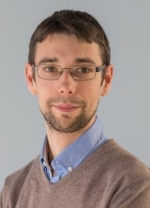
Pulsed Laser Ablation in liquids (PLAL) is a relatively (1990s) new technique to prepare nanoparticles. It relies on the interaction between a focused pulsed laser beam and a metal target immersed in a solution to generate nanoparticles without the need for chemical reducing agents or surfactants. As opposed to conventional methods, PLAL uses far less chemicals and gives nanoparticles with a pristine surface. It allows the preparation of monometallic nanoparticles, alloys and even complex materials such as high entropy alloys. These nanoparticles have been used for a variety of applications, ranging from MRI contrast agents to electrocatalysts and including nail polish! In our group, we are investigating the properties of the nanoparticles prepared by this technique for various applications, such as the electrochemical reduction of CO2 or the oxidation of aqueous pollutants. In today’s presentation, you will be introduced to PLAL itself, some of the key parameters of the technique and the advantages of using nanoparticles as electrocatalysts. The presentation will also cover some of our recent work. For a CO2 electroconversionproject, we prepared bismuth nanoparticles by PLAL and used them in a custom, 3D printed, gas phase electrolyzer that converts CO2 to formate. The reaction can be carried out in either 0.5Mbicarbonatebuffer or in artificial seawater. Finally, we will talk about urea oxidation, and how it could be used in aCO2 electrolyzer to get rid of two pollutants at the same time.
Erwan Bertin is an assistant professor at St. Francis Xavier University in Antigonish, NS. He obtained a B.Sc. in Chemistry from the University of Sherbrooke in 2009.He continued his studies under the supervision of Dr. Daniel Guay at the Institut National de la Recherche Scientifique-Énergie, Matériaux et Télécommunications on the synthesis of Pt(100) nanostructures and their catalytic properties. He was awarded his Ph.D.in February 2016. He then worked at the National Institute of Standards and Technology (Gaithersburg, MD) until December 2016. In 2017, he received the Humboldt fellowship and moved to the University of Duisburg-Essen. From January 2018 to June 2019, he was a postdoctoral researcher at the University of Calgary working in the group of Dr. Birss on new catalysts for CO2 electroreduction.
Zoom Link: https://utoronto.zoom.us/j/83676625060 (Passcode:202302)
Check out his research here
